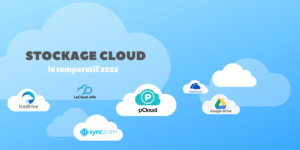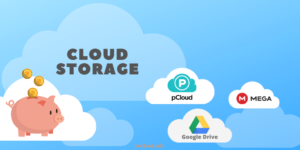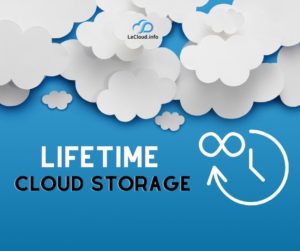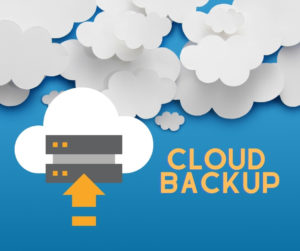Most of us use Google’s services on a daily basis. Whether it’s the search engine, Gmail email, Google Docs or Google Calendar, these services are free and well-designed.
Google provides a free storage space that stores all the data from these services, and serves as a synchronization space.
Google’s online storage is attractive at first glance, but doesn ‘t have all the expected qualities.
Security and privacy are not sufficiently guaranteed. Some of the synchronization and sharing features also fall short of the competition.
On the other hand, when it comes to collaborative working, Google Drive is undoubtedly the best. The many tools available are designed to facilitate collaborative working. Fortunately, the free 15 GB space is more than enough to take advantage of these features.
Online data synchronization
File synchronization is the first need for an online storage space like Google Drive.
On the computer, Backup & Sync is the official application for setting up synchronization with your Google Drive cloud storage space.

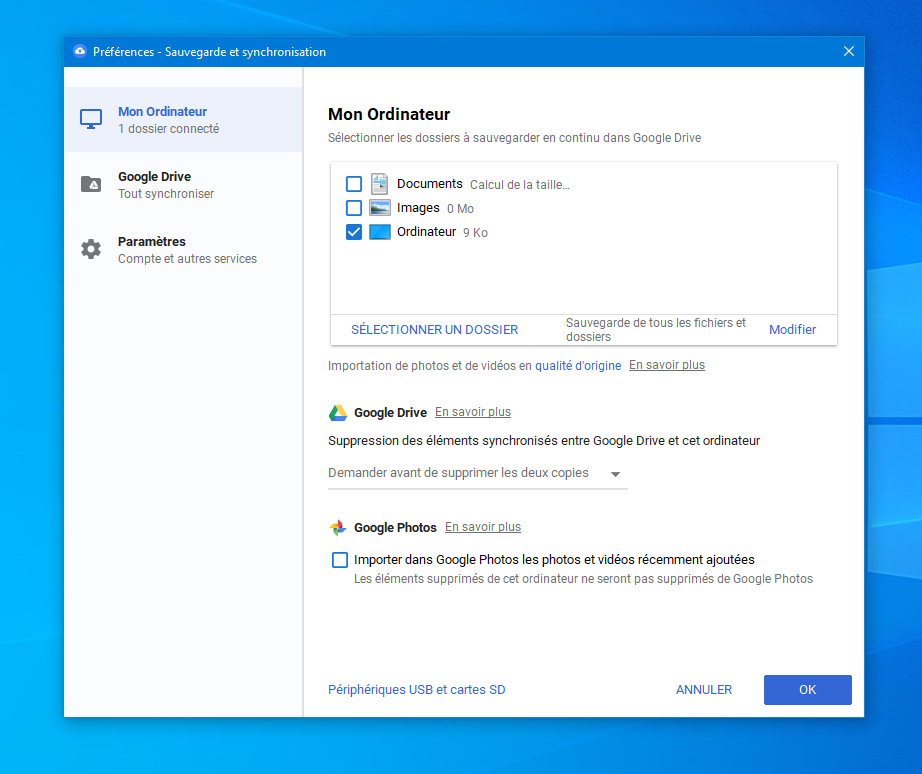
It works in the same way as its competitors:
- You select the location of your Google Drive folder. All the files you store there are automatically synchronized on Google’s servers. These files will then be accessible from all other devices connected to your account.
- The application lets you select other folders to synchronize (your Documents folder, for example).
For Windows or Mac, but not Linux
The official Google Drive computer application is available for Windows and MacOS.
It’s a shame that such a popular and important company as Google hasn’t developed an application for Linux too.
As a Linux user, you’ll have to turn to alternatives like pCloud for a suitable application.
Mobile applications
When it comes to mobile applications, Google Drive is also classic, offering the traditional Android and iOS duo, which will be sufficient for many.
No “virtual folder” in the cloud
Among the missing features, we regret that Google Drive doesn’t have a virtual folder stored entirely in the cloud. The absence of this feature is regrettable.
pCloud, for example, offers this feature under the name pCloud Drive, but it’s a useful way of saving space on your hard disk, since the files stored there are downloaded on the fly when you need them. As a result, files don’t take up space on your hard disk, which could be a huge space saver.
Security and privacy on Google Drive
Like most of its competitors, Google Drive uses data encryption. This is used to transfer data to its servers and to store data permanently.
Although the algorithm used is 128-bit AES (most other services use the more secure 256-bit AES), the resulting encryption is reasonably secure.
On the other hand, you should bear in mind that Google Drive has no private encryption. In short, Google can decrypt and read your data, just as you can.
If you don’t want your data to be readable, you’ll have to opt for more secure online storage.
- overall,pCloud is better and cheaper than Google Drive. For privacy protection, it also offers the pCloud Crypto option (for a fee). With it, you can privately encrypt the files of your choice. This is an excellent solution if only part of your files need to be protected, retaining the advantages of non-private encryption for the rest of the data (speed, previews, …). You can also read our review of pCloud.
- If you want to apply private encryption to all your files, then go for private encryption by default. This is the case with Sync. com, which is both inexpensive and highly secure. Here’s our review of Sync.com.
File sharing and collaborative working
When it comes to file sharing, Google Drive lacks certain features that have become commonplace among its competitors.
For example, there is no possibility of protecting a shared file with a password. This is a useful feature for protecting your shared files. Without it, anyone accessing your shared link will be able to view or download your files without restriction.
Google tools and collaborative working
It’s hard to talk about file sharing and collaborative working in Google Drive without mentioning the myriad of tools available when you have a Google account (Google Docs, Sheets, Slides, Calendar, Gmail, Photos, Keep, etc.).
All these tools use your Google Drive space to store the data you need.
Fortunately, all these tools can often be used with the free Google account, and the 15 GB provided free of charge comes in handy.
Even on Google Photos, which is one of the services requiring the most storage data, your photos and videos can be saved with no storage limit if you agree to have them reduced to the size of 16 megapixels. This size is of excellent quality for conventional use.
Google Drive prices
Although not as low as the best competing services, Google Drive’s prices are still low.
Google Drive offers 5 paying packages, ranging from 100 GB to 20 TB (20,000 GB).
Up to 500 GB online storage
For storage spaces up to 500 GB, prices are interesting, but not as much as those charged by the top of our comparison of the cheapest online storage. Google Drive comes 3rd, while pCloud and Sync. com are 1st and 2nd respectively.
PCloud’s lifetime offers (one-off payment for lifetime cloud storage) make the price difference even greater for those looking for long-term savings.
Note that Google Drive offers smaller online storage spaces in this category (100 GB or 200 GB) than pCloud and Sync. com’s 500 GB.
However, the price per gigabyte is much higher with Google Drive (2 times more expensive for the 100 GB plan).
Between 1 TB and 2 TB of online storage
In this category, Google Drive is well placed, but not the best.
It’s pCloud again that takes the cake for its 2TB plan, thanks to its very low monthly and annual rates, but also because of its very profitable Lifetime plan.
Beyond 2TB of online storage
Google Drive’s main competitors don’t offer plans above 2TB. So, in this category, Google Drive is a very good choice, with very reasonably priced plans.
Our opinion of Google Drive
Google Drive is one of the most widely used online storage services in the world (especially in its free version). This is no doubt due more to the popularity of Google and its multiple tools than to the quality of the service itself. Google Drive is a good online storage solution, but nothing more.
So, in most areas (file synchronization and sharing, security and privacy, price) there are better alternatives.
Where Google Drive really comes into its own is in collaborative working. Thanks to Google’s many tools, collaborating on a file is easy and convenient.
Our verdict is that having a free Google Drive account is a good idea, especially as the free 15 GB is enough to use all Google’s collaborative tools.
On the other hand, for storing and synchronizing your files on a larger storage space (a few hundred gigabytes or a few terabytes), we strongly advise you to choose a more suitable alternative.
Alternatives to Google Drive
pCloud: the natural alternative
pCloud is clearly the best alternative to Google Drive. It’s the alternative that most closely resembles Google Drive, while making up for its shortcomings in terms of security and synchronization and sharing features. As a result, you won’t feel out of place coming from Google Drive or Dropbox, for example.
pCloud also offers an option(pCloud Crypto) which, although not free of charge, makes up for privacy concerns by making your files readable only by you. It is also possible to purchase the Crypto option on a pay-as-you-go basis for lifetime use.
The free 10 GB storage space is a good way to test pCloud if you want to get an idea.
Read our pCloud review for a fuller description.
Sync.com: the privacy alternative
If the aspect that puts you off most with Google Drive is the lack of privacy, and you want to protect all your data from the prying eyes of your online storage provider, then Sync.com is the best alternative.
Sync.com is a cloud storage that provides private“zero-knowledge” encryption. By this we mean that all your data is encrypted on your device before being sent to Sync.com’s servers. They are then stored in this encrypted form. As you are the sole owner of the decryption key, you can rest assured that no one at Sync.com will read your data.
Other online storages follow this principle (starting with pCloud with its Crypto option), but Sync.com does it at a price equal to or lower than pCloud or Google Drive.
Beware, however, that private encryption implies some limitations in functionality, which is why we generally recommend a hybrid solution like pCloud to get the best of both solutions. Read our review of Sync.com for more details.
